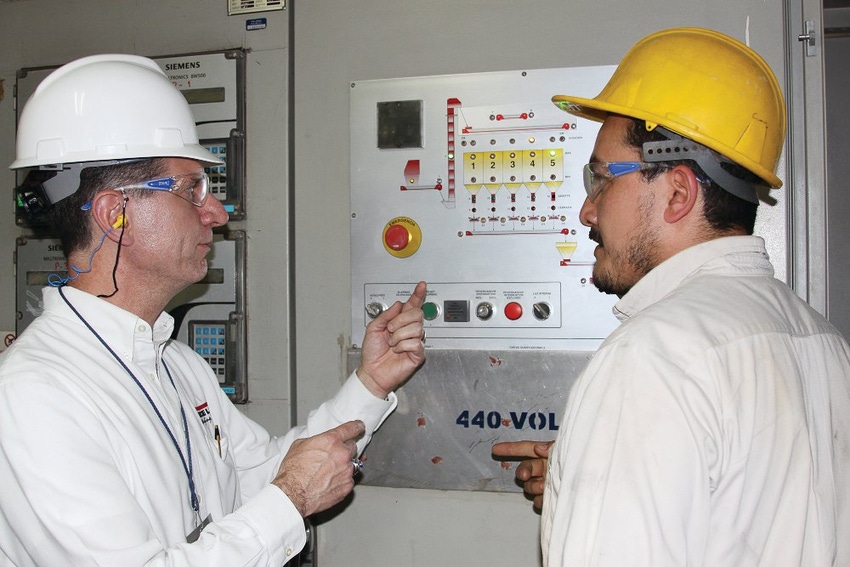Programmable Controller Offers Flexibility, Saves Time and Installion Costs
July 12, 2012

GrUPO Porcelanite-Lamosa is one of the largest producers of ceramic tile in the world. David Hernandez, manager of the plaster mill at the Porcelanite plant in Querétaro, Mexico, recently replaced a European-made weighing system with a 920i system designed by Industrial Weighing Solutions (IDN).
“There was no support for the old system,” says Hernandez. “It was very expensive to get service. This 920i system is very good. No problems at all.”
Mario Garza, director of IDN, notes, “The 920i is doing what a PLC would have done, but for less cost and with greater flexibility. PLCs are not well equipped for weighing applications.”
Garza also points out that using the 920i saved Grupo Porcelanite-Lamosa time and installation costs. “Only the original controller was replaced, without altering or replacing the field elements. The variety of option boards available to receive and transmit signals allowed us to completely adapt the 920i with the existing elements.”
The 920i controls two bucket lifts, five conveyor belts, five in-motion conveyor scales, and monitors levels in five silos. As soon as the 920i detects a low level in a silo, it sounds an alarm to prompt the operator to initiate refilling. When the 920i detects that the receiving silo of the mill is full, it stops the process. After the receiving silo signals the level has dropped, the indicator restarts the formulation process.
The operator selects the formula. The 920i controls adding five ingredients in a continuous mix via in-motion weighing conveyors. The mix is very important to the end strength and durability of the finished tile.
Porcelanite-Lamosa floor tiles are waterproof, fireproof, fadeproof, odorproof, resistant to fungi, acid, and the elements. All proven by undergoing a series of punishments devised by the European Normalization Committee.
Varnish toughness is tested by scratching the varnished surface with a progression of implements starting with a fingernail and ending with a diamond tip. Ice resistance is tested by stacking 10 floor tiles of the same type, soaking the stack in water, and alternately freezing and thawing continuously for a minimum of 50 times. Tiles are boiled in water for two hours to test water absorption. There is more shake and bake to test other qualities.
The IDN system consists of one 920i controlling three processes: loading the silos; loading the mill; the weighbridges. There might be slight tone and caliber (dimension) variations. These are inherent to clay products that are made using a high-temperature baking process. Even the caliber variations within one box may be up to 1.5 mm. This is still within the limits established by European Normative Standards. That is why Porcelanite-Lamosa recommends mixing floor tiles from five different boxes for best results.
Rice Lake Weighing Systems is an international leader in the manufacture and distribution of weight-related products and process-control equipment. For more information, visit www.ricelake.com.
You May Also Like


